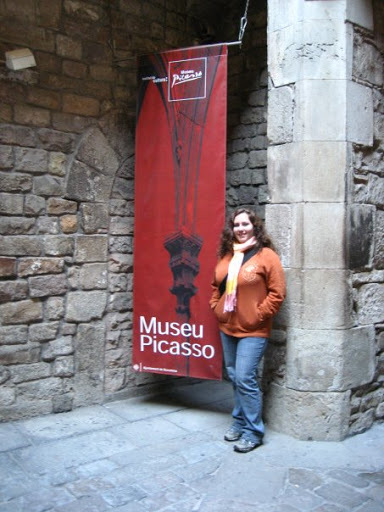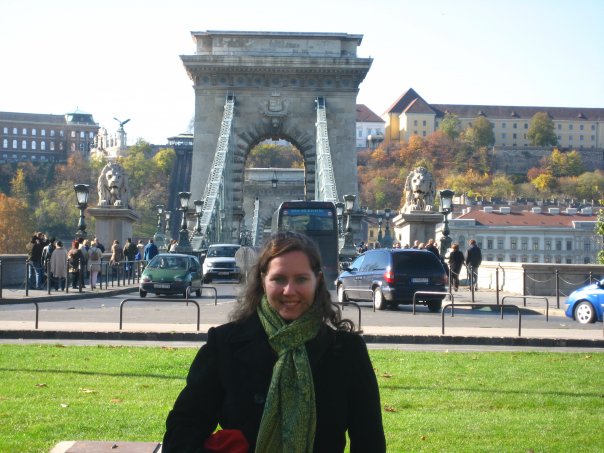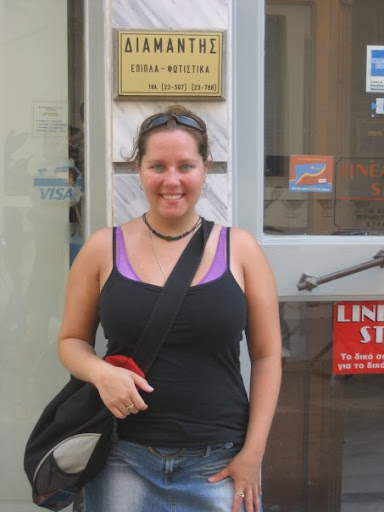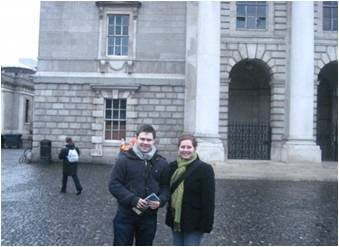Colleges and universities around the world are valuing the goal of becoming more globally engaged and continuing to encourage their students to study abroad. What is the value behind those international experiences? Studies have shown that students who study abroad not only have higher grade point averages (G.P.A.s) but also develop the necessary skills to function in our interconnected world. According to Abrams (1960), “goals of higher education include intellectual and professional development, general education, personal growth, and the furtherance of the international understanding.”
When people study abroad, they break down the ethnocentricity that they feel about their own country being the best and only way to live. Studying abroad allows a student, for example, to develop positive attitudes toward other countries and allow for further curiosities to be explored through research, travel, and befriending international students who can open another door of understanding for Americans.

in Barcelona
According to Carlson and Widaman (1987), “International understanding involves knowledge of and awareness about issues and events of national and international significance as well as general attitudes that reflect heightened sensibility to international issues, people, and culture.” Earlier this year, I taught a class on the importance of international experience and talked about some of the benefits of having global experience. Some benefits I talked about include: appreciating diversity and expanding cultural horizons, improving interpersonal communication skills, learning a new language or improving language ability, developing flexibility, adaptability, and problem solving; increase cultural awareness and sensitivity, increase confidence, independence, and initiative; and gaining new friendships and networking. The list of benefits is even greater than the ones I have listed and more and more students are seeing how valuable and life-changing studying abroad can be for them.
Developing intercultural competence is another goal of educators in the field of higher education and student affairs because of the transformative effects it has on students. According to Bennett (2007), “intercultural competence is the ability to communicate effectively and appropriately in a variety of cultural contexts with people who are different from one’s self [i.e., who are from a different national, ethnic, religious, professional, organizational, generational, etc., culture].” Many institutions are including trainings to faculty and staff to enhance the strategy of becoming globally engaged. Changes in curriculum to include more cultural options for students and encouraging students to study a language are only the beginning. Hosting workshops and trainings for staff to be better equipped with not only working with a more diverse population but also to educate students better on topics of competence are goals to make the importance of international experiences a product of deeper learning.
A way to evaluate and measure intercultural competence is through the assessment tool, the Intercultural Development Inventory (IDI). According to Harris and colleagues (2004), “The IDI is the premier cross-culturally valid and reliable measure of intercultural competence. The IDI has direct application to global leadership as ‘being capable of operating effectively in a global environment while being respectful of cultural diversity’ (p. 25).”

in Romania
Students do not necessarily have to go abroad to feel the effects of global competency. Before I ever went abroad, one of my instructors in my French language class back in high school paired the students in the class with an international pen-pal. Developing a friendship with someone from a different culture can be an impactful experience with a greater learning curve. Educators realize that the peer to peer relationship has a greater effect in and outside of the classroom through mentoring programs and development of friendships. The same is true for international pen-pals because the students have the opportunity to write to a friend from another country, around the same age, and get a different perspective. It’s very life-changing because that can be an introduction to many differences that would be more accepted by the peer to peer relationship, which otherwise may not be so accepted. Because I had a pen-pal, I can attest to being more open-minded and not being intimidated to ask a lot of questions that I may have otherwise shied away from.
Studying and interning abroad has a greater learning curve because students have the opportunity to live in a different culture, leaving their comfort zones behind them, and taking in all the differences around them. Students experience many highs (honeymoon stage) and are paired with lows, like culture shock and the want to go home. Living in a different culture is no easy task but to embrace it takes effort to try new things (like speaking in a different language, eating a new food, trying a cultural experience) as well as learning how to navigate around foreign cities, budgeting international currency, and learning how to live like a local.

in Prague
When I studied abroad in Italy for five months, I had to do that and more. I worked so hard saving up for my study abroad experience working in a hotel for over two years, saving over $10,000 of my own money, and I had to budget every nickel and dime I had while living and traveling. While over in Europe, during the holidays and weekends, I would plan trips to different countries to quench my cultural thirst. I remember before leaving to go abroad, I read so many travel guides and I looked at myself as an ambassador of the United States, and wanted to help others who had stereotypes of Americans, to learn about us and our culture as well. I took it very seriously and had a focus while I was over in Europe. I did study international tourism and Italian language and culture but I also wanted to learn about my Italian heritage that I didn’t know much about [because I grew up in a predominately Greek household]. I think the fact that I saved so much money to have this experience made me take a serious approach to studying abroad and I wanted the most outcomes from it. When I returned to the U.S., I was an intern in my alma mater’s study abroad office, turning down a marketing internship with the Pittsburgh Zoo and PPG Aquarium to learn more about international education.
Reflecting on studying abroad helps the students a lot with re-entry processes, but the benefits don’t stop there. There are many career benefits to studying abroad as well. According to the IES Abroad 2012 survey report, "U.S. college graduates earn at least $7,000 more than students who did not study abroad. In addition, 97% secured a job a year after graduation, 90% got in to their first or second choice of graduate school options, and 84% felt that studying abroad helped them build valuable job skills, such as language proficiency, cultural training, adaptability, and communication” (www.iesabroad.org).

castle in Romania
“We believe that more and more employers are realizing the extraordinary benefits of study abroad, and are seeking out graduates who have had study abroad experiences. Key jobs skills such as adaptability, global understanding and tolerance, leadership, and independence are directly fostered by learning and living abroad,” said Dr. Mary M. Dwyer, President and CEO of IES Abroad. “For parents concerned about the return on their investment, studying abroad offers some very clear benefits for graduates.”
According to the article, International Experience and Graduate Employability by Crossman and Clarke (2009), “Suzie, another manager of a major company with regional and global links preferred to ‘‘employ graduates with international experience,” commenting that it was something that would ‘‘really stand out on a CV.” How much employers valued a particular international experience at the recruitment stage was dependent upon; (a) relevance to their own activities in terms of the industry or links they had with a particular country or region, (b) the nature of the work undertaken by a student on an internship (c) the reputation of the organization in which the student had spent time, and (d) whether the international experience had been aligned with summative assessment.”
Students have options after graduation to feed their cultural taste buds from enlisting in the Peace Corps to getting their Teaching English as a Foreign Language (TEFL) certification to teach English abroad. The article states well that employers want to hear about the study abroad experience in the interview. The problem is that not all students know what to say about their experience. So the first thing is to reflect on the study abroad experience. What courses were taken abroad? What was the student body like? What tasks or projects were worked on while abroad? (Examples include leading an student organization, meeting professionals in the industry that the student is studying, organizing a social event, working part-time with a professor or doing something language specific).
Think about the work habits and how they differentiate with employers abroad. Studying and living abroad can paint a picture of how the lifestyle and work style could differ from U.S. companies and organizations. Doing informational interviews, job-shadows, and visiting different companies can also help with this if a student hasn’t worked abroad. Cross-cultural skills are another set of uniquely defined skills that help with employability. Living and studying abroad and being exposed to different perspectives, culture shock, and being adaptable, flexible, and curious for other cultures helps immeasurably. Being able to speak a different language is truly a skill that is wanted and needed with employers. Indicating what level of reading, writing, and speaking ability to the employer is attractive because many companies strive to be divers and with clients oversea, having a language ability is crucial to the company’s success.

in Budapest, Hungary
There are plenty of general work skills that can still be impactful like being able to manage change, being independent and sensitive of other cultures, and being an effective communicator. As transitionsabroad.com put it, “There are dozens of work characteristics developed abroad: resourcefulness, versatility, persistence, observant and calm demeanor, diligence, multifaceted skills in communications, broad and strategic thinking, ability to deal with ambiguities, courage, ability to take on challenging work, open-mindedness, flexibility, resourcefulness, tact, listening and observing skills, ability to deal with stress, sense of humor, awareness of interpersonal politics, respect for protocol and hierarchy, loyalty, and tenacity. All of these skills are valuable to you when contacting domestic as well as international employers.”
Describing the experience of how studying abroad is impactful can be tricky too because how a person uses the language is important. Instead of using the word culture shock, the word adjustment might be a better word and explaining how it was an adjustment. A person can say that they are able to deal with change instead of cross-cultural adaptability.
Here’s one example:
“My study abroad experience was a big adjustment. I have confidence in my ability to be an independent and flexible person because I am able to deal with change, like living in a different part of the world. I have been able to navigate around foreign cities, budget in multiple currencies, and speak in different languages [even if moderately proficient], while being adaptable to my new surroundings. I worked for over two years prior to my study abroad experience, saving almost $10,000 and planned different cultural activities in various countries to learn more about global cultures. I chose Rome, Italy because I never knew much about my Italian heritage. I took an Italian language and culture class while in Italy to help me transition better to my new environment and even met family abroad for the first time. Seeing how other cultures live gave me a new perspective of my life in America. When I returned from my experience abroad, I completed three different internships related to my study abroad experience. One internship was at my alma mater’s study abroad office, another with Colleagues International which is sponsored by the U.S. Department of State, and a third with a study abroad website managing their social media and publishing articles related to studying abroad. I have learned so much and it really changed my life. I now want to work in international education as a profession to help students at higher education institutions to study abroad and gain immeasurable skills from this experiential experience. It was the best investment in my education and I am proud to say that I am a part of the less than 2% of students in America who have lived and studied abroad.”

Stasia meeting relatives in Greece

On a street with her name, Greece
As Jean-Marc Hachey said, “If you have studied abroad, you know the broad value that this type of education brings you. It is undisputable. You have now returned home, a stronger you. You have insights into the world that others who have not traveled do not have. You are conscious of a wider set of ideas about humanity. Your planet is smaller, your insights are larger. Whether you are speaking to domestic or international employers, your study abroad experience will always provide you with strengths and vision that are almost unattainable under circumstances other then living abroad. Your intellect is stimulated and your mind has been freed when you live in close proximity to people who have a culture different from your own. Good luck and best wishes in you long career of continued learning.” (www.transitionsabroad.com)
If you are considering studying abroad or have returned from studying abroad, think about all the skills that can be or are gained from being abroad. It is life-changing there’s no doubt about that. Take some time to tell employers how — because believe me, they want to hear it!

Stasia with pen pal Connor
#StudyAbroadBecause
Anastasia Rose-Diamantis Lopez is a 2nd year Master degree student in the Higher Education and Student Affairs program at Western Michigan University. She is passionate about international education and will be starting her job search soon as she will be graduating in the summer of 2013. She is currently a Career Educator and Advisor Graduate Assistant in the Career and Student Employment Services office and will be starting a study abroad office practicum in the spring. Anastasia graduated Cum Laude with her Bachelor of Science in Business Administration degree with a concentration in Hospitality and Tourism Management from Robert Morris University in Moon Township, PA. She studied abroad in Rome, Italy and has been to 14 countries so far. She’s passionate about study abroad and international education, loves bowling, and collects global ornaments for her international Christmas tree. Find her on twitter (@StasiaDiamantis) and linkedin or email her at stasia.diamantis[at]gmail.com. She's also the Global Education Editor here at Wandering Educators.
References
Abrams, I. (1960). Study abroad. New Dimensions in higher education. No. 6, Office of Education, U.S. Department of Health, Education, and Welfare. Washington, D.C.: Government Printing Office.
Career benefits of study abroad. (n.d.). Retrieved from www.iesabroad.org
Crossman, J.E., Clarke, M. (2009). International experience and graduate employability: stakeholder Perceptions on the connection. Adelaide, Australia: Springer Science + Business Media B.V.
Hachey, J.M. (n.d.). Marketing Study Abroad: How to sell your overseas experience to employers. Retrieved from www.transitionsbroad.com
Harris, P.R., Moran, R.T., & Moran, S.V. (2004). Managing cultural differences: Global leadership Strategies for the 21st century (6th ed.). New York: Elsevier.
All photos courtesy and copyright Anastasia Rose-Diamantis Lopez
This is part of a series on international education, as part of our commitment to #GenerationStudyAbroad and our commitment to the White House Summit on Study Abroad and Global Citizenship. You'll find many more inspiring stories here on Wandering Educators!
